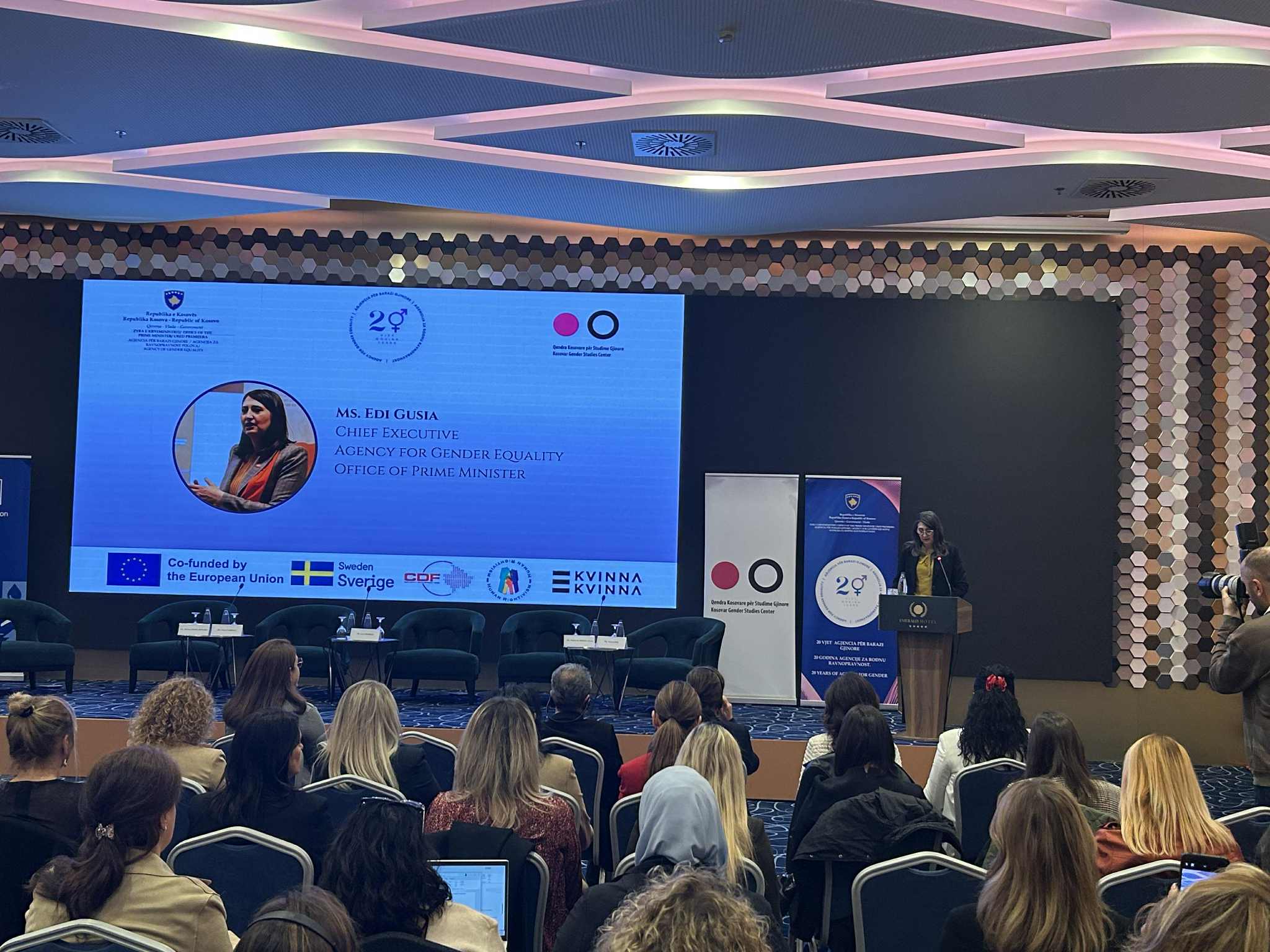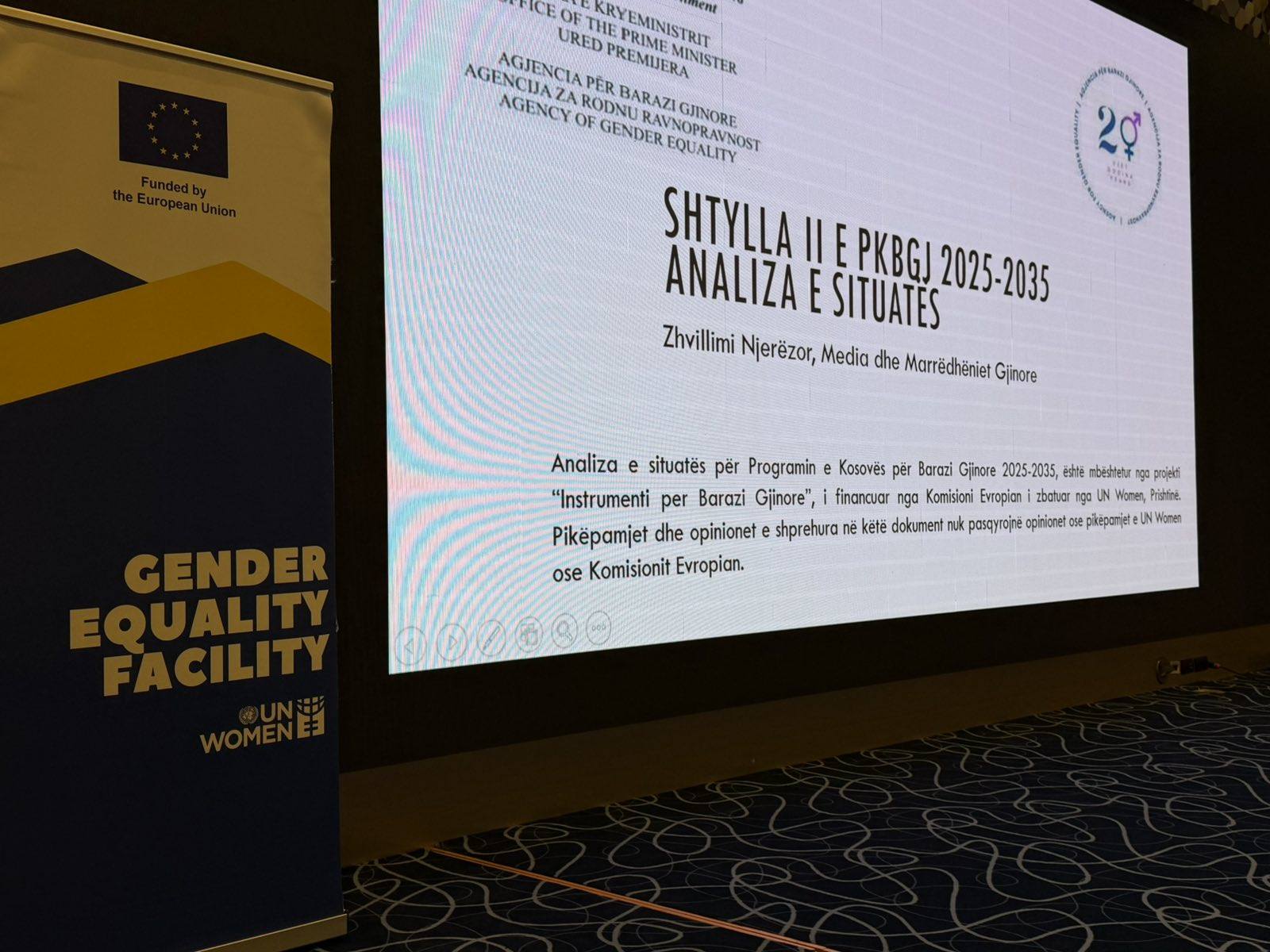The COVID-19 Pandemic Outbreak Emerging Issues for Women and Girls and Gender-Sensitive Recommendations UN Women & UNFPA
March 30, 2020
The COVID-19 Pandemic Outbreak
Emerging Issues for Women and Girls and Gender-Sensitive Recommendations
UN Women & UNFPA
- Exacerbated burdens of unpaid care work on women and girls: As healthcare systems are stretched by efforts to contain the outbreak, care responsibilities are frequently “downloaded” onto women and girls, who usually bear responsibility for caring for ill family members and the elderly. In particular, as all schools are closed, and residents are requested to self-isolate followed by a postponement of all activities. The closure of schools further exacerbates the burden of unpaid care work on women and girls, who absorb the additional work of caring for children.
- Meeting the needs of women healthcare workers: Women constitute the majority of workers in the health and social sector and are on the frontlines of the response. Women healthcare workers globally have called attention to their specific needs beyond personal protective equipment, including to meet menstrual hygiene needs. Psychosocial support should also be provided to frontline responders. The majority of caregivers, at home and in our communities, are also women.
- Increasing GBV and protection risks: It is proven that GBV and DV may increase during crises, as self-isolation and quarantine are implemented to contain the virus. Trends in China have shown that DV increased threefold in one month. Such trends are now visible in the U.S.A as isolation measures are implemented.
Kosovo Police have confirmed that in the first week of the isolation measures there has been a slight increase in reporting of DV cases. KP expect this trend to grow, and the reporting to increase. Additional efforts need to be made to make the Victims Advocates hotline number more visible to the public. - Experiences have demonstrated that where women are primarily responsible for procuring and cooking food for the family, increasing food insecurity as a result of the crises may place them at heightened risk, for example, of intimate partner and other forms of domestic violence due to heightened tensions in the household. In addition, life-saving care and support to GBV survivors (i.e. clinical management of rape and mental health and psycho-social support) may be disrupted in one-stop crisis centers in tertiary level hospitals when health service providers are overburdened and preoccupied with handling COVID-19 cases.
- During public health emergencies, human and financial resources are often diverted from various health programs to respond to the infectious disease outbreak. Sexual and reproductive health services are being impacted by the pandemic and must be prioritized.
- High Maternal Mortality Ratio (MMR) in a country is a strong indication of a weak health system. The COVID-19 pandemic will further strain health systems, and is expected to severely impact the health systems of low- and middle-income countries - with worse impacts in countries experiencing fragility and humanitarian crises. Preparedness and response support to countries with high maternal mortality rates will be critical in low income countries - and in pockets of populations with high maternal mortality rates in middle-income countries. Such measures must pay special attention to ensuring the continuation of basic services such as maternal and newborn health and sexual and reproductive health services and supplies.
- Modern Contraceptives Commodities and Supplies, including menstrual health and hygiene items, are central to adolescents and women’s health, empowerment, and the exercise of sexual and reproductive health and rights as these groups can be disproportionately affected by the pandemic.
- Supply chains are being impacted by the pandemic. The closing of borders and constraints in manufacturers’ delivery flows are negatively affecting the import and in-country availability and distribution of contraceptives, essential maternal health medicines and other essential medicines including antiretroviral (ARV) drugs. This could have life-threatening consequences and reverse recent gains to ensure universal access to sexual and reproductive health (SRH), which encompasses access to modern contraception, maternal and newborn health and ARVs for human immunodeficiency virus (HIV).
- Cultural factors may exclude women from decision-making spaces and restrict their access to information on outbreaks and availability of services.
- Impacts on women’s economic empowerment: crises pose a serious threat to women’s engagement in economic activities, especially in informal sectors, and can increase gender gaps in livelihoods.
Recommendations
- Disaggregate data related to the outbreak by sex, age, and disability. Data related to outbreaks and the implementation of the emergency response must be disaggregated by sex, age, and disability and analysed accordingly in order to understand the gendered differences in exposure and treatment and to design differential preventive measures.
- Strategic plans for preparedness and response must be grounded in strong gender analysis, taking into account gendered roles, responsibilities, and dynamics. This includes ensuring that containment and mitigation measures also address the burden of unpaid care work and heightened GBV risks, particularly those that affect women and girls.
- Strengthen the leadership and meaningful participation of women and girls in all decision-making processes in addressing the COVID-19 outbreak.
- Ensure that women are able to get information about how to prevent and respond to the epidemic in ways they can understand. Women play a major role as conduits of information in their communities. They have typically less access to information than men. Thus, reaching women and girls and educating them on the disease is crucial to tackling the spread.
- Ensure human rights are central to the response. Lockdowns, quarantines and other such measures to contain and combat the spread of COVID-19 should always be carried out in strict accordance with human rights standards and in a way that is necessary and proportionate to the evaluated risk -- but even when they are, they may have serious repercussions on people’s lives.
- First responders must be trained on how to handle disclosures of GBV. Health workers who are part of an outbreak response must have basic skills to respond to disclosures of GBV that could be associated with or exacerbated by the epidemic, in a compassionate and non-judgmental manner and know to whom they can make referrals for further care or bring in to treatment centres to provide care on the spot. Holistic support to women first responders should furthermore include psychosocial support.
- Primary and secondary healthcare facilities may be requested to take on the caseload of GBV survivors and only refer to tertiary hospitals when higher level of care is needed. GBV referral pathways should be updated to these healthcare facilities.
- Psychosocial support should be available for women and girls who may be affected by the outbreak and are also GBV survivors. Related to the previous point—being affected—whether directly or indirectly by an outbreak of an infectious disease—can be traumatic as can be an experience of GBV. Recognizing that these may be co-occurring for some women and girls is incredibly important and requires that psychosocial support be available and accessible for women and girls in general.
- Measures taken to relieve the burden on primary healthcare structures should prioritize access to sexual and reproductive health services, including pre- and post-natal healthcare.
- It is critical that all women have access to safe birth, the continuum of antenatal and postnatal care, including screening tests according to national guidelines and standards, especially in epicenters of the pandemic, where access to services for pregnant women, women in labour and delivery, and lactating women is negatively impacted.
- Keep the health system functioning: Maintain sexual and reproductive health and rights (SRHR) information and services, protect health workers and limit spread of COVID-19
- Provision of modern short- and long-acting contraceptives, information, counselling and services (including emergency contraception) is lifesaving and should be available and accessible during the COVID-19 pandemic response.
- Ensure that measures are in place to prevent, protect and mitigate the consequences of all forms of violence, stigma and discrimination against adolescents and youth - especially girls and young women - during quarantine and self-isolation processes and procedures.
- Consider including products such as essential hygiene and sanitation items (e.g. sanitary pads, soap, hand sanitizers, etc.) for female health workers, women and girls, particularly those quarantined for prevention, screening and treatment.
- Advocate and support planning and spacing of pregnancy with adequate modern contraceptive supply and counselling to help clients’ preparedness and continued contraceptive practice in case of limited mobility and access to normal services.
- Support Ministry of Health to provide online screening, education and reproductive health and contraception counselling services, using mobile phones e.g. WhatsApp messaging etc
- Promote the role of the primary health sector and community empowerment programmes to shift commodity distribution from clinical settings to the community.
- Ensure women’s and girls’ choices and rights to sexual and reproductive health is respected regardless of their COVID-19 status, including access to contraception, emergency contraception, safe abortion to the full extent of the law and post-abortion care.
- Ensure that, when medical resources are scarce, access to healthcare is maintained, including sexual and reproductive health services with special attention to pregnant women among vulnerable populations such as persons living with disabilities, persons living with HIV, Roma Ashkali and Egyptian community, refugees, and other minority groups , people living in poverty
- Ensure pregnant women with suspected, probable, or confirmed COVID-19, including women who may need to spend time in isolation, have access to woman-centred, respectful skilled care, including obstetric maternal screening tests, fetal medicine and neonatal care, as well as mental health and psychosocial support with readiness to care for maternal and neonatal complications
- Ensure that pregnant women infected with COVID-19 at the time of delivery are attended at least in the second level of care, to ensure appropriate care if respiratory complications arise
- Pregnant women with respiratory illnesses must be treated with utmost priority due to increased risk of adverse outcomes, and antenatal, neonatal and maternal health units must be segregated from identified COVID-19 cases.
- Develop targeted women’s economic empowerment strategies, or explore cash transfer programming, to mitigate the impact of the outbreak and its containment measures including supporting them to recover and build resilience for future shocks.
.jpg)





